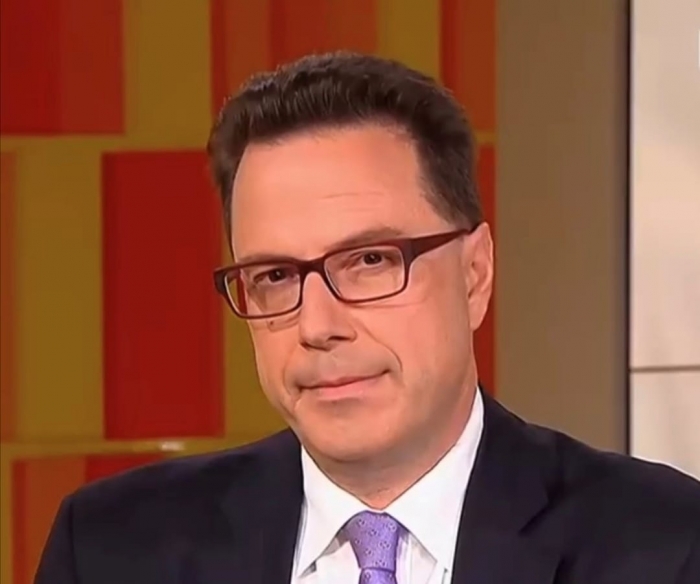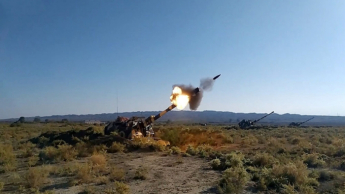Sasha Toperich: I think China will take steps to use the Middle Corridor - EXCLUSİVE İNTERVİEW

Sasha Toperich is senior executive vice president of the Transatlantic Leadership Network. From 2013 to 2018, he was a senior fellow and director of the Mediterranean Basin, Middle East and Gulf initiative at the Center for Transatlantic Relations, at the Paul H. Nitze School of Advanced International Studies at Johns Hopkins University in Washington, D.C. Sasha Toperich gave an exclusive interview to Baku Tribune.
Sasha Toperich is senior executive vice president of the Transatlantic Leadership Network. From 2013 to 2018, he was a senior fellow and director of the Mediterranean Basin, Middle East and Gulf initiative at the Center for Transatlantic Relations, at the Paul H. Nitze School of Advanced International Studies at Johns Hopkins University in Washington, D.C. Sasha Toperich gave an exclusive interview to Baku Tribune.
- Over the past two years, the pandemic has complicated efforts to ensure food security at the global level, and today the events that are taking place in Russia and Ukraine have further aggravated the situation. Russia and Ukraine occupy an important place in world food production and supply. Russia is the largest supplier of wheat to international markets, while Ukraine is the fifth-largest exporter. How will disruptions in the supply chains and logistics of grains and oil seeds from Ukraine and Russia, along with export restrictions imposed on Russia, affect food security? Who will be the first (which regions) to feel the consequences of the war?
- Parts of the Middle East and South Asia may experience most shortages short term. The war in Ukraine only showed how interconnected the global community is and with oil prices so high and with ongoing uncertainty in the market, supply chains may experience more disruptions with food prices jumping significantly.
- How intense the conflict will be and how long it will last is unclear. How do you see a way out of this situation? What should countries dependent on food supplies from Russia and Ukraine do to ease the shock?
- It seems to me that there is an understanding that the conflict needs to end fast. If Ukraine is willing to accept the neutrality status as announced, Russia should pull out its troops so that reconstruction, healing process, and return of refugees starts to happen. Much has been destroyed in Ukraine, and each single day of fighting creates more damages that will take years to rebuild. Anyhow, it will take time to reach political solutions for Donbas and areas in Ukraine that Russia unilaterally recognized as independent countries. But the war must stop now. The international community should show solidarity and reduce some segments of consumption in order to help provide for more basic needs of these countries.
- What place can be assigned to Kazakhstan in the world market in terms of supplies of grains and oil seeds?
- The international community should promptly invest in Kazakhstan vast agricultural potential, not only to help defuse current food crises, but to secure enough of these essential resources for any other potential crises humanity may experience. More and more, corporate world is looking at Kazakhstan as a solution to this problem, but also to rare earth elements and other natural resources in Kazakhstan.
- As you know, the Trans-Caspian International Transport Route (TITR) runs through China, Kazakhstan, the Caspian Sea, Azerbaijan, Georgia and further to European countries. Recently, on March 9, 2022, a meeting of the Kazakh delegation headed by the Chairman of the Board of Samruk-Kazyna JSC Almasadam Satkaliyev with a number of senior officials of the government of the Republic of Azerbaijan took place in Baku. The main topic of discussion was the project to create a joint venture to develop the Trans-Caspian International Transport Route. Will China take active steps to use this route?
- The Middle Corridor is gaining on its relevance as the supply demand will grow, and alternative routes will be needed. I think China will take steps to use that route. The resolve and unity showed by the Western Alliance sanctioning Russia's aggression on Ukraine is a "message loudly heard" in Beijing. TITR is a project that make sense.
- What economic risks will new anti-Russian sanctions entail for the South Caucasus and Central Asian countries? And what opportunities do the new situation in Ukraine create for the countries of these regions?
- Decline in remittance is already causing problems for these countries. Millions of migrant workers stationed in Russia may experience hardship and thus their families back home dependent on their financial support. Sanctions are dealing a severe blow to Russia economy and that is felt in the region as well. Opportunities are in fostering closer cooperation in the region, increase joint-venture programs to boost more domestic production where possible. Political reforms pushed aside for too long if initiated, like in Kazakhstan, could attract more investments. There are no simple solutions but as the saying goes "every crises is a new opportunity" - that should be the case with this one as well.
Seymur Mammadov
The Rocket and Artillery formations of the Azerbaijan Army conduct live-fire exercises in accordance with the combat training plan for 2021, the Ministry of Defense of Azerbaijan told Baku Tribune.
LAST NEWS






.jpg&h=67&w=67&zc=1&q=100)













